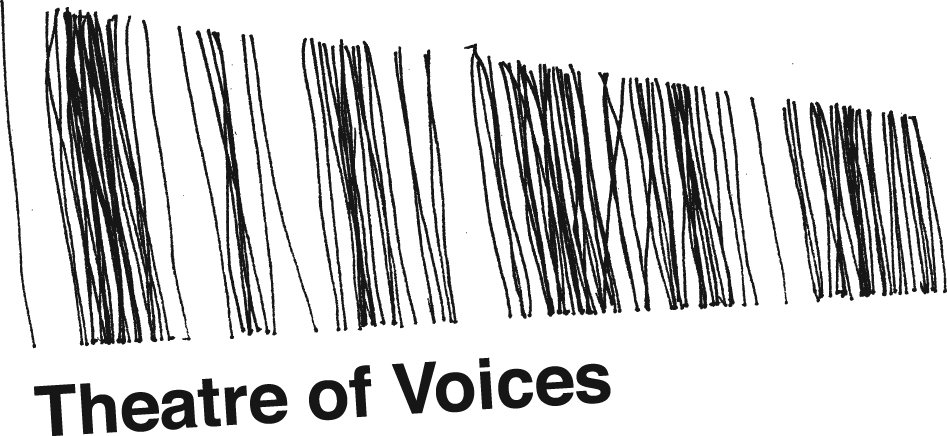BERND FRANKE (b. 1959)
Behind me - Dips Eternity - with Naomi Sato, shō
FRANZ SCHUBERT (1797-1828)
Gesang der Geister über den Wassern
FRANZ SCHUBERT
Zum Eingang (Deutsche Messe)
HUGO WOLF (1860-1903)
Geistliche Lieder 1-3
FRANZ SCHUBERT
Zum Offertorium & Zum Sanctus (Deutsche Messe)
HUGO WOLF
Geistliche Lieder 4-6
FRANZ SCHUBERT
Schlussgesang (Deutsche Messe)
JOHANNES BRAHMS (1833-1897)
5 Gesänge, Op. 104
[English below]
2023 Theatre of Voices Festival - afslutningskoncert som ‘Musik i skumringstimen'
En Japansk shō blander sine bambusrør-klange med fire sangere, der synger Saigyos ord fra før Hørby Kirke blev bygget og Emily Dickensons ord fra 1800-tallet. Det er Bernd Franke, som har skrevet et helt nyt værk, som indleder sidste koncert i Theatre of Voices Festival 2023. Den anden er musik af Wolf, Brahms og Schuberts Tyske Messe med tekst af Goethe og salmer, der den dag i dag indgår i menighedssangen i Østrig og Sydtyskland. Programmet slutter med Brahms ‘5 Gesänge’ , som er noget af det mest inderlige vokalmusik, der er skrevet. Et dybtfølt hjertesuk over den tabte kærlighed, den tabte ungdom og tabet af selve livet.
I år dækker festivalen 27.-30. juli j i Holbæk, København, Roskilde og Hørby. Følg med på FB, Instagram og www.theatreofvoices.com.
Fri entré
Eternity etc.
Our concert opens with a new work especially composed for Theatre of Voices by the German composer Bernd Franke. The music is scored for four singers and a Japanese shō: an ancient reed instrument made with thin bamboo tubes and a mouthpiece: and we are joined for our performances by Naomi Sato
Bernd Franke's songs are settings of short poems by the 12th-century Japanese poet Saigyo and the 19th-century American poet, Emily Dickinson, who spent her life in Amherst (Massachusetts). The composer writes: "I coupled poems by Dickinson and Saigyo in pairs, interwoven with small interludes on the Shō. Eternity is an important motif in the works of Dickinson, while Saigyo's poetry is often characterized by irony and sometimes bitterness against the eternal weaknesses of human existence."
Some people see a link between the tradition of zen Buddhism and the 19th-century American transcendentalism of Ralph Waldo Emerson, Henry David Thoreau and Margaret Fuller: particularly as manifested in the ideals of individual freedom and the significance of the natural world. The transcendentalists in turn looked back to German romanticism, of Goethe in particular. Meanwhile, their contemporary Emily Dickinson was also aware of their work, for there is an element in her poetry that folds readily into their philosophy and writings, though none of her poems were published until four years after her death.
The theme of eternity recurs at the beginning of the second half of the concert as well, in Schubert's setting (for four male voices) of Goethe's poem, Der Gesang der Geister über den Wassern. Goethe composed the poem in 1779, after a visit to the waterfalls and rocky cliffs of the Lauterbrunnen in Switzerland. The poem was published in 1789 and set by Schubert in March 1817. Although we have only the fragile word partsong to describe such compositions, this work is something bigger than that. The music reflects in detail the irregular shape of the poem's seven sections, each section having its own mood, key and tempo, and illuminates the text –– without for a moment losing its musical direction.
Quite a different kind of music is presented in Schubert's Deutsche Messe, which was intended for congregations to sing. We sing four sections from this work, interspersed with Hugo Wolf's 6 Geistliche Gesänge. These short pieces are remarkably chromatic in style, almost reminiscent (in that respect) of Gesualdo. The program concludes with Brahms's 5 Gesänge (Op. 104) composed between 1886-88, one of the finest sets of partsongs in the repertoire.
This year, the Festival covers the 27th-30th July in Holbæk, Copenhagen, Roskilde and Hørby. Stay updated on Facebook, Instagram and www.theatreofvoices.com.
Free admission
Solist
-Naomi Sato, Shō
Theatre of Voices
-Else Torp
-Kate Macoboy
-Anna Caroline Olesen
-Laura Lamph
-Paul Bentley-Angell
-Jakob Skjoldborg
-Jakob Bloch Jespersen
-William Gaunt
Theatre of Voices Band
-Miles Lallemant
Paul Hillier, artistic director
24, 25, 26. juli – Trinitatis Kirke. Åbne prøver
27. juli kl 19.30 – Skt Nikolai Kirke, Holbæk. Åbningskoncert.
28. juli kl 19.30 – Trinitatis Kirke, København. Koncert
29. juli kl 15.00 – Trekroner Kirke, Roskilde. Artist talk Sato (JP) og koncert
30. juli kl 14.30 – Hørbygaard Gods. Lokalhistorisk salon, bobler og romantiske sange
kl 17.00 – Hørby Kirke. Koncert og afslutningsreception
Theatre of Voices Festival is supported by Statens Kunstfond, Holbæk Kommune , Augustinus Fonden, Kodas Kulturelle Midler/DKF, Korsangernes Fællesråd, William Demant Fonden, Knud Højgaards Fond, Solistforeningen af 1921 and more… Thank you!
